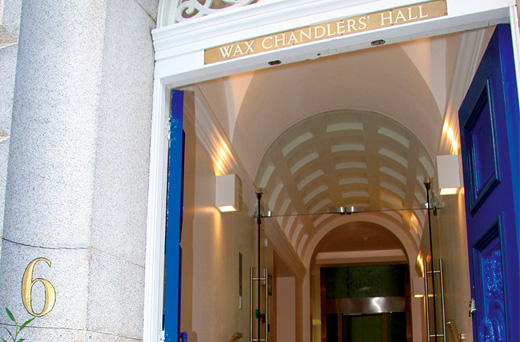From early days, the companies had been jealous about their relative positions in civic life. The present Order of Precedence was substantially fixed by 1515, when the Wax Chandlers were allocated the twentieth position in civic processions – a number which the Company has held ever since.
The Order of Precedence does not reflect relative wealth or antiquity. The importance of different companies to the economy of the City and their political significance has fluctuated markedly over even a couple of hundred years. The best explanation of the fixing of the Order of Precedence is that it is like a snapshot – a picture in time. In 1515, the Wax Chandlers had an important commercial relationship with great merchants, the gentry and to a lesser extent, the Royal Court. They enjoyed a unique relationship with the Guild of the Holy Name, a prestigious religious organization based in St Paul’s Cathedral and boasting many important merchants amongst its membership. Their religious products played a very important role in a society in which life on earth was seen as preparation for an eternity of heavenly delights, whose attainment could be greatly facilitated by good works, some of which involved the consumption of substantial amounts of beeswax. They had a royal charter and a hall. So their standing at that date is not a surprise.
‘The Great Twelve’ and the ‘Minor Companies’
The Livery Companies of London are divided into the ‘Great Twelve’, and the ‘Minor Companies’. This distinction has been made for over six hundred years and is paralleled in European cities such as Florence (seven Arti Maggiori), Paris (six Corps de Metier), and numerous German cities. It was not, however, till the mid sixteenth century that today’s classification emerged.
The relationships between the Wax Chandlers’ Company and others are not clear cut. There was clearly a sub-contractor relationship with some Goldsmiths, but this does not seem ever to have been formally expressed as between the two companies.
Nor can the position of the Wax Chandlers in the ranks of the minor companies been wholly a matter of the status of their trade, for in Paris, the wax chandlers were one of the four subdivisions of the Epiciers-Apothecaires, one of the Corps de Metier.


